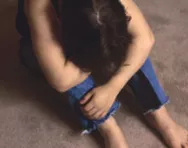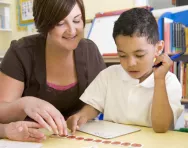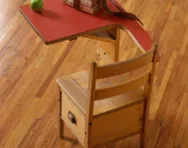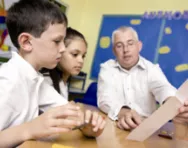Important update from TheSchoolRun
For the past 13 years, TheSchoolRun has been run by a small team of mums working from home, dedicated to providing quality educational resources to primary school parents. Unfortunately, rising supplier costs and falling revenue have made it impossible for us to continue operating, and we’ve had to make the difficult decision to close. The good news: We’ve arranged for another educational provider to take over many of our resources. These will be hosted on a new portal, where the content will be updated and expanded to support your child’s learning.
What this means for subscribers:
- Your subscription is still active, and for now, you can keep using the website as normal — just log in with your usual details to access all our articles and resources*.
- In a few months, all resources will move to the new portal. You’ll continue to have access there until your subscription ends. We’ll send you full details nearer the time.
- As a thank you for your support, we’ll also be sending you 16 primary school eBooks (worth £108.84) to download and keep.
A few changes to be aware of:
- The Learning Journey weekly email has ended, but your child’s plan will still be updated on your dashboard each Monday. Just log in to see the recommended worksheets.
- The 11+ weekly emails have now ended. We sent you all the remaining emails in the series at the end of March — please check your inbox (and spam folder) if you haven’t seen them. You can also follow the full programme here: 11+ Learning Journey.
If you have any questions, please contact us at [email protected]. Thank you for being part of our journey it’s been a privilege to support your family’s learning.
*If you need to reset your password, it will still work as usual. Please check your spam folder if the reset email doesn’t appear in your inbox.
What to do when your child hates school

Monday morning. You are rushing to pack the kids' lunches and get them out of the house on time. But the youngest is ill. Again. You've taken him to the doctor, who can't seem to find the any reason for the mysterious flu-like symptoms. You’re beginning to suspect that your six year old's amateur dramatics – the tummy clutching and the shivers – can only be attributed to one simple fact: your child hates school.
Parentline Plus’s Sue Ormesher advises parents to first of all find out what is making their child unhappy: “It’s important to show that you want to understand your child's problems as they will be more likely to open up to you.”


Boost Your Child's Learning Today!
- Start your child on a tailored learning programme
- Get weekly English & maths resources sent direct to your inbox
- Keep your child's learning on track
Not sure what’s wrong? Observe them at school
Educational reforms have made it simpler for parents to be directly involved in their children's education.
Mum-of-two Suzie Walsh from Manchester found that her five-year-old son went through a phase of hating school, so she shadowed him in the classroom for a week to see his interaction with his teacher and his peers first-hand. “I noticed that the teacher was not giving him a chance to speak and, as if in retaliation, he would become disruptive,” she says, “So I was able to see first-hand where things were going wrong and once I talked to my son about this and to the head teacher, we were able to make sure that he felt listened to.”
School refusal
School refusal isn’t just not wanting to go to school, it’s debilitating form of anxiety that affects around one per cent of children. It’s more common in boys, and tends to peak between ages five and six, and 11 and 12. If you think your child may be suffering from school refusal, find out more about it and read our action plan to decide what your next steps will be.
What if it’s bullying?
For some children, their hatred of school has nothing to do with their teacher but with unpopularity or, more seriously, bullying.
Chartered educational psychologist Tim Francis runs an online advice service for parents. He suggests parents observe their children during playtime or lunch breaks: “You tend to find that children with no friends are the ones who hang around the wire fence. You can help your child to better their social skills by talking to a teacher about implementing a buddy scheme, where more active children are assigned to those who don't find it as easy to interact. You can help them with their social skills training at home as well. These are easily available on the internet. And encourage your child to bring classmates home for dinner or for sleepovers.”
“If bullying is the problem, arrange a meeting at the school and make sure your child is included,” suggests Sue. “It helps to write down all the questions you have and the points you want to make. Try to keep copies of any letters you send and a diary of where you have gone for help and information.”
Teenagers and school
It may be the case, as it is with some teenagers, that there are no major problems but your child is going through the stage of thinking that school isn't ‘cool'.
“First of all, be aware that this is a very normal phase in any teenager’s development,” says Tim. “But in most cases parents can solve this problem by putting their foot down and telling their child that they find their refusal to attend school unacceptable. Alternatively you can emphasise the fact that unless they put the hard work in they will be unable to fulfil their dream of being a doctor or a policeman or whatever it is.”








